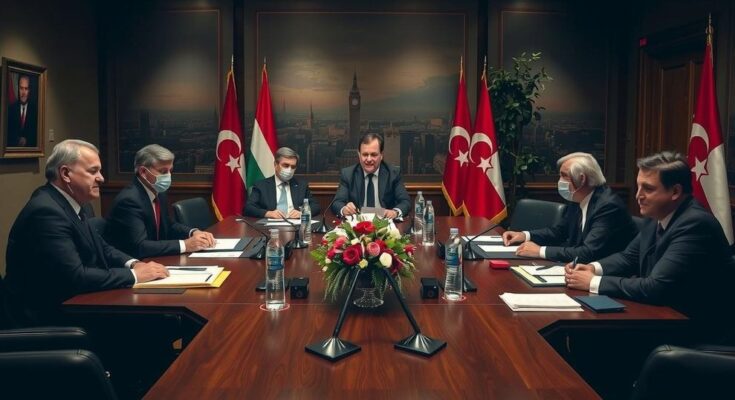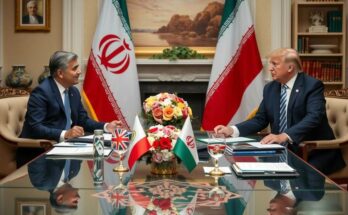Steve Witkoff, President-elect Trump’s new Middle East envoy, is advocating for a ceasefire and hostage negotiations in Gaza after the recent escalation of conflict following Hamas’s attacks. Concurrently, Iran is mobilizing regional fighters in support of the Assad regime in Syria. Amnesty International has accused Israel of genocide in Gaza, adding to international tensions surrounding their military actions.
President-elect Donald Trump has appointed Steve Witkoff as his special envoy for the Middle East, tasking him with the critical mission of negotiating a ceasefire and a resolution concerning hostages in Gaza. During late November discussions in Israel and Qatar, Witkoff sought to revitalize dialogues that have stalled amidst ongoing conflict, including actions by Hamas that escalated tensions significantly after an attack on October 7, 2023. This diplomatic effort emerges in a highly charged atmosphere, where both the humanitarian crisis in Gaza and persistent military engagements in the region are paramount concerns.
In addition to the Gaza situation, Iran has been mobilizing regional fighters, including Hezbollah and Iraqi Shiite militias, to support Syrian President Bashar al-Assad amid increasing pressure from Islamist rebel forces. As Assad’s regime faces a formidable challenge in maintaining control, the involvement of external militia groups raises questions regarding their effectiveness, especially given Hezbollah’s depleted status from its previous engagements with Israel.
Amnesty International has raised alarms over Israel’s military operations, labelling them as genocidal actions against the people of Gaza. This assertion adds yet another layer of complexity to the ongoing debates surrounding the military strategy employed by Israel in response to earlier hostilities initiated by Hamas, which tragically resulted in extensive civilian casualties.
Monitoring efforts also persist regarding the fate of hostages taken during Hamas’s attack, while the region grapples with the fallout of hostilities that have led to widespread devastation. The international community appears to be watching closely as many pursue advocacy for peace and humanitarian resolutions in what remains a volatile geopolitical landscape.
The ongoing conflict in the Middle East continues to generate global concern, centered around the Gaza Strip and Syria. The region has been afflicted by prolonged violence, notably marked by the recent attacks initiated by Hamas against Israel, resulting in significant casualties. In response, Israel has undertaken military actions that have drawn severe criticism from international organizations, including Amnesty International, which has accused Israel of committing genocidal acts against Palestinians. Simultaneously, Iran’s involvement in Syria aims to bolster the Assad regime amid its struggles against opposing forces, highlighting the intricate web of alliances and enmities that characterizes the region.
In summary, the Middle East remains a focal point of geopolitical tension and humanitarian crises, driven by the interconnected conflicts in Gaza and Syria. Negotiations led by US officials like Steve Witkoff aim to address immediate issues, such as ceasing hostilities and securing the release of hostages. The allegations of genocide against Israel complicate these efforts further as the international community grapples with the realities of intervening in long-standing conflicts while navigating the ramifications of regional power dynamics.
Original Source: www.washingtonpost.com




